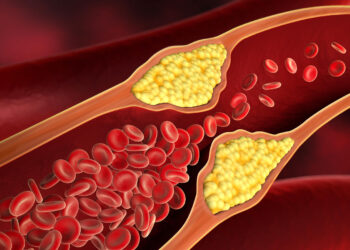
Babies’ brains operate at a different rhythm to those of adults
GOODLUZ / Alamy
When a baby tries to make sense of what they have seen, their brain activity seems to tick at a slower rhythm than it does in adults, which may help them to continually learn new concepts.
Our brain processes sensory stimuli using networks of neurons. If a neuron receives a strong enough signal from another neuron, it transmits the signal to more neurons still, producing synchronised waves of electrical activity where many neurons alternate between activated and silent states.
Such brainwaves occur at various frequencies. When a given brain region displays a range of frequencies simultaneously, a higher proportion of its neurons may synchronise with certain frequencies more than others. For instance, previous studies show that the adult visual cortex displays a wide range of frequencies when people see things, but proportionately more neurons seem to synchronise with waves at 10 hertz, or cycles per second.
To learn whether the same applies to infants, Moritz Köster at the University of Regensburg in Germany and his colleagues recruited 42 babies aged 8 months old, via their parents. The team recorded the infants’ brain activity – using electrodes placed on their scalps – while they watched dozens of friendly cartoon monsters flash up on a screen for 2 seconds each, across about 15 minutes.
The researchers made use of the fact that brainwaves tend to pulse in time with rapidly flickering images, providing a way to test how many neurons synchronise with various frequencies in visual parts of the infant brain. Specifically, they flickered each monster on and off at eight frequencies, ranging from 2 to 30 hertz.
By analysing the brain recordings, the team found that the visual cortex produced waves of synchronised activity in time with the flickering cartoons. But the brainwaves were the most fired up at 4 hertz, which suggests that more neurons synchronised with this flickering frequency than with others.
What’s more, this 4-hertz signal was present in the background even when the brain adjusted to seeing flickering at other frequencies, such as 15 hertz. “What’s really interesting is that even if you stimulate in all the different frequencies, you always find the 4-hertz response,” says Köster.
This rhythm falls within a band of frequencies known as theta, which has been linked to forming new concepts, so it may help infants learn from what they are seeing. “It suggests infants are in a constant learning mode,” says Köster.
Supporting this idea, the researchers also found that 4-hertz brainwaves, but not those at other frequencies, in the visual cortex seemed to spread to neural circuits in other brain regions involved in concept formation, which suggests these waves transmit visual information to knowledge-building areas.
By repeating the experiment in seven adults, the researchers confirmed prior findings that their visual brain circuits are most strongly activated by a 10-hertz frequency, and discovered that this frequency was present in the background regardless of the rate at which the cartoons flickered.
Adults have already experienced many things, so the visual part of their brains seems to be tuned to tick at a higher frequency, which studies suggest may help them to block out unimportant information and focus on retrieving conceptual knowledge, says Köster.
Further studies are needed to establish whether exposure to images flickering at 4 hertz could enhance the ability of infants to learn new concepts, says Emily Jones at Birkbeck, University of London. The team hopes to learn more about this in a separate ongoing study, says Köster.
Topics:
Source link : https://www.newscientist.com/article/2497755-babies-brains-tick-more-slowly-than-ours-which-may-help-them-learn/?utm_campaign=RSS%7CNSNS&utm_source=NSNS&utm_medium=RSS&utm_content=home
Author :
Publish date : 2025-09-26 13:00:00
Copyright for syndicated content belongs to the linked Source.














